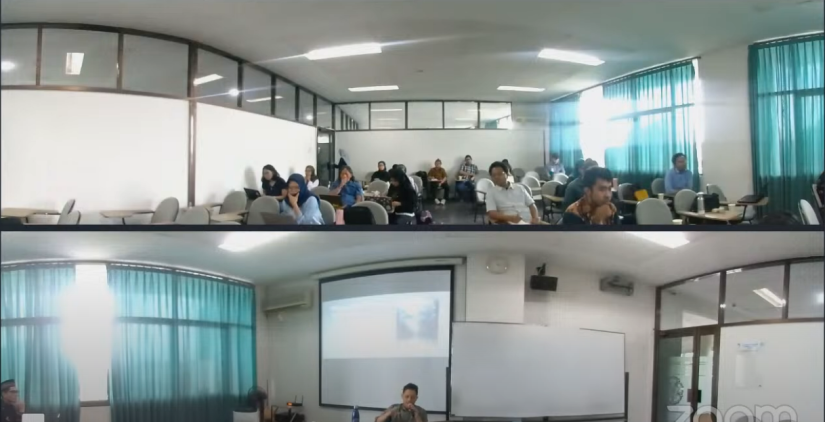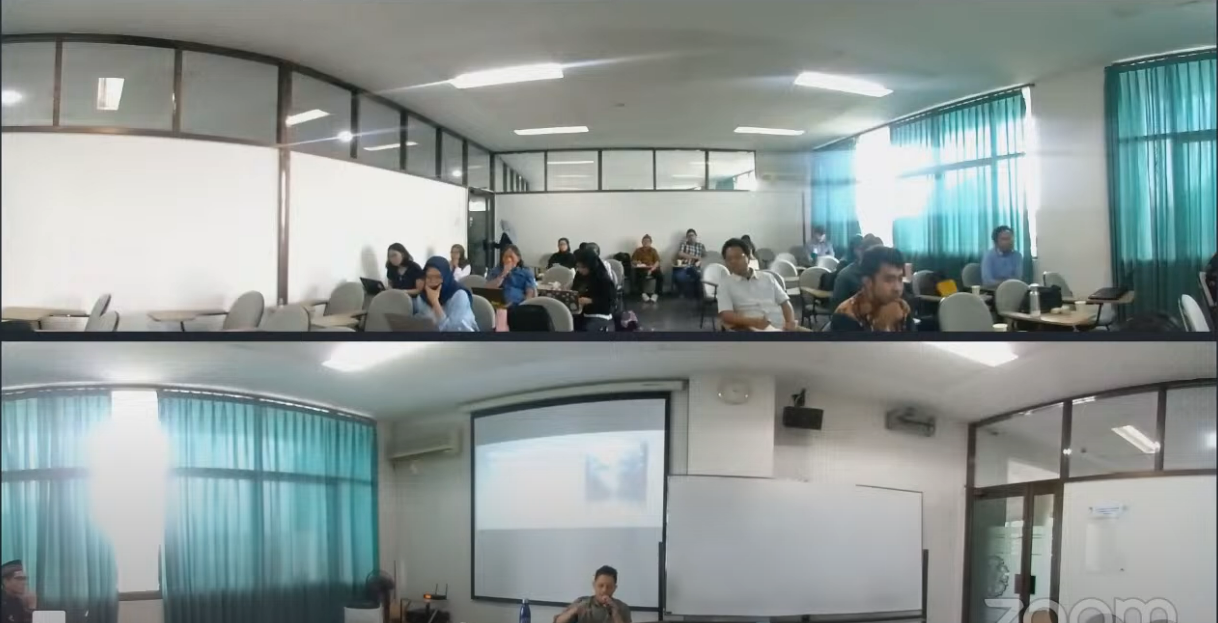

On October 9th 2024, the Religious and Cross-Cultural Studies Program, or Center for Religious and Cross-Cultural Studies (CRCS), Graduate School, Gadjah Mada University (UGM) held a Wednesday Forum in Classroom 306, UGM Graduate School Building. This forum focused on the issues of monoculture and violence faced by the Dayak Benuaq community in East Kalimantan. The speaker for this event was Gilang Mahadika, a researcher currently pursuing a master’s degree in the Anthropology Department at UGM.
In his presentation, Mahadika explained that the Dayak Benuaq community has coexisted with the oil palm company London Sumatra (Lonsum) since 1996. However, tensions have escalated due to land grabbing by the company, prompting the community to protest and demonstrate. “In 1999, the Dayak Benuaq community built a blontakng (Dayak Benuaq totem) as a memorial to the violence, fear, and threats circulating among the community, government, and company during the conflict,” Mahadika stated.
According to Mahadika, this historical violence has left a profound mark on the Dayak Benuaq community in East Kalimantan. His research reveals that this violence has deep impacts on individual and collective identities, as well as community consciousness. Oil palm serves as a concrete illustration that planting trees is not always a good practice, especially when all the trees are the same. Instead of contributing to reforestation, the expansion of oil palm plantations actually eliminates forest diversity and gradually degrades the surrounding areas. As a result, large oil palm plantations create a spiral of violence, affecting not only nature but also the people who have no choice but to coexist with it.
The forum also discussed the broader implications of such exploitation on education and community development. The Dayak Benuaq community, often marginalized and disadvantaged, faces discrimination that hinders their access to quality education and resources. This lack of educational opportunities perpetuates a cycle of poverty and exploitation, making it difficult for the community to advocate for their rights and preserve their culture.
Furthermore, the discussion emphasized the importance of equality and the need to combat discrimination against indigenous peoples. The struggle of the Dayak Benuaq community is not only about land rights; it is also about cultural preservation and the right to live in harmony with their environment. The exploitation of their land by oil palm companies threatens not only their livelihoods but also their cultural identity.
Author: Asti Rahmaningrum
